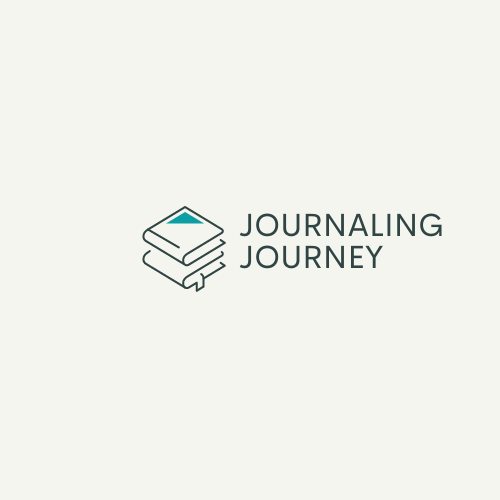- Introduction: The overlooked tool for career growth
- Why men should start journaling for career success
- How journaling can boost professional skills
- 5 Types of journaling practices for career growth
- Journaling prompts for men’s career development
- Tips to make journaling a habit
- How journaling can lead to long-term career success
- Taking the first step
Introduction: The overlooked tool for career growth
Successfully and intentionally managing your career growth and trajectory is phenomenally challenging, and only seems to be getting harder.
With increasingly flatter corporate structures meaning less opportunity for development, fewer companies rewarding long-term loyalty, meaning it’s no longer an option to just keep turning up and slowly rise through the ranks, and increasingly difficult conversations around pay and promotions, it can feel all too easy to become ‘stuck’ nowadays.
That’s not to mention the effect technology continues to have on the modern workplace. Increasingly it’s becoming an expectation that we’ll always be contactable, by bosses, clients and customers. Job security is being threatened by new technologies, and we’re bombarded daily with messaging about how important it is to have a ‘side hustle’.
The ‘grindset’ is not only dangerous to us, both physically and mentally, but it is actively preventing us from taking stock of our current situation and taking the necessary steps to take ownership of our own career paths.
How many of us have ‘fallen into’ jobs, or stayed in a role because, ‘they need us.’ It’s their busiest period, I’d be leaving them in the lurch if I left now.
This perpetual busyness isn’t productivity, but it is preventing you from being honest with yourself about what you want out of your career, and when you’re spending close to 90,000 hours of your life in work, can you really afford not to take the time to define what you want out of it?
Where does journaling come into it?
Journaling is the antithesis of this unproductive busy work.
Where modern workplaces want fast results, journaling wants long term progress towards goals. Where, in our careers, having time to think, reflect and learn from experiences is considered a luxury, in journaling it is a necessity. Where, in our day-to-day lives, we are too busy to stop, take stock, set goals, plan actions and be intentional in what we achieve, journaling provides breathing space and an opportunity for clearer purpose.
Journaling is the act of intentional writing, and whilst there are many different forms and styles of journaling, as well as tools to aid journaling, the basic premise is the same. You write with a purpose.
And whilst ‘intentional writing’ might sound like it falls in the same wheelhouse as chakra alignment and positive orgones, there is a good chance you already do it. Goal setting, writing to-do lists, self appraisals at work, tracking workouts at the gym, these are all forms of intentional writing that can be incorporated into your journaling.
Journaling is not a new thing or a fad, it is something that some of the greatest people throughout history have done to aid with their self awareness, self development and clarity of thought.
For any man looking to focus on his career, journaling can provide a wealth of benefits which can be directly applied to your chosen path. It can boost and enhance productivity by keeping you focused on tasks and helping you to identify important tasks over those that simply take up most of your time. It can help you prioritise and track progress. It can provide clarity of thought and purpose, allowing you to stay focused on what matters most to you, and allows you to plan how you will achieve. It can also be a fantastic tool for personal growth, helping you develop the attributes and mindset of a leader, spot and work on areas for improvement to make you an asset to any team, and help develop the communication style you will need to get your ideas across and convince people to follow you.
We will go into greater detail about how journaling can specifically aid you in your career, but it’s worth reiterating that journaling is a practical tool that can be applied to your life and deliver tangible benefits.

Why men should start journaling for career success
For something that affects such a large proportion of our lives, that takes up so much time, that contributes to (or reduces) our stress level, that makes up a significant proportion of the relationships we will have in our lives, and which can directly impact our happiness, it is not uncommon for people to be largely passive when it comes to their career, career path and trajectory.
How often do you hear people say they picked a degree or an apprenticeship because they didn’t know what else to do, or because they thought it would give them the most prospects? And then they say yes to the first job they’re offered because they need experience (and money), and then they stay in that job until the conditions become unbearable, and they look for something else, and they say yes to the first thing that comes along again.
The reason job interviewers ask where you see yourself in five years is because they want to gauge your level of ambition and loyalty. But how often do you ask yourself the same question? And how honest are you with the answer? Do you have a clear goal that you want from your career?
Whether that’s job title, salary, working conditions, financial freedom or whatever else it might be, ask yourself, do you really know? You’re going to spend the best years of your life working, so don’t you think you should consider what you want back?
As well as being a tool for planning your career path, a journal can be an excellent for mental wellbeing in high-stress career paths, in a lot of ways, such as;
Stress management
We all know that stress can prevent us from performing to the best of our abilities, and being able to properly manage stress levels as you navigate high-pressure careers is an invaluable tool for anyone looking to progress in their chosen field.
Journaling can be a great help in managing stress and anxiety, letting us get thoughts out of our brain and onto paper, allowing us to assess situations more objectively, and giving us an early warning system for rising stress levels, as well as the ability to plan and put mechanisms in place to cope with upcoming stressful situations.
If you have to give a big presentation, or you’re playing a vital role on a project, for example, your journal can help you plan out scenarios, create plans and strategies, stay organised and focused and communicate your ideas more effectively, all of which can help alleviate stress.
Clarity and focus
One of the most impressive traits I have seen in common amongst great leaders is the ability to make and stand by decisions quickly. This doesn’t mean they are rash, or refuse to change course if they are proven wrong, but rather it means they are able to assess their options, decide quickly on a preferred course of action with limited data and understand that they can reevaluate the decision as more data becomes available.
This emphatic decision making has never come easily to me, though it’s something I’m envious of, but journaling has helped me improve my decision making process. The way I use journaling for decision making is to create to-do lists. I like to go further than the standard listing of all tasks in no particular order though, and will employ a prioritisation framework known as PIE. This stands for probability, impact and ease, and you score each factor out of 5.
Probability is the likelihood, given what you currently know (as well as any previously held knowledge or insight), that what you need to do will be successful and have your desired effect.
Impact is how big a difference will it make (1 being minimal impact and 5 being completely game changing), and Ease is how difficult it is to get done.
Once you’ve put a score in these three columns for each task, you will he able to quickly organise your to-do list into categories of prioritisation. Hard to do but going to have a huge impact and probability of success? Get it done. Easy to do but not likely to change much? Delegate it. Hard to do and not likely to change much? Kick it down the bottom of your list.
There are lots of frameworks like this that you can use, but the key takeaway is, your to-do list shouldn’t be a simple ‘listing’ exercise. Chances are, you know what you have to do. Instead, it’s about turning the to-do list into a practical, applicable tool.
The second way I use my journal to help with clarity and focus is by mapping out my options. This is a simple process where I essentially weigh up the pros and cons of possible options in front of me (and remember, doing nothing is always an option). I find that by writing up my options and dedicating time to consider them all, the option I want to take is often presented to me.
Beyond that, journaling helps me set, prioritise and track progress towards goals which provides clarity of purpose. It is also the place where I list out my values and virtues, and I will often refer back to them when faced with an important decision. Sometimes, I can even go back through old journals and find times when I faced a similar decision, and see what the outcomes of my decision were back then. In this way, journaling has been a fantastic tool for clarifying my thought process and to help me become a more effective decision maker.
Goal-setting
One of the most effective uses of journaling that I have found personally is using my journal for setting goals. Goal setting, in and of itself, is not a revolutionary technique that is going to transform your life, but journaling allows you to go beyond simply ‘setting a goal’.
Once you have decided on your goals and written them down (which already makes them more tangible), you can begin to plan actions and steps to achieve those goals, you can track progress towards them and you can review your performance and adjust the plan as necessary, every day.
Journaling helps us go beyond ‘wishing’ things would happen, and allows us to actively participate in making them happen by providing a space to plan, monitor, analyse and keep ourselves accountable. When it comes to journaling for career success, the power of journaling comes from stopping and reflecting on what you actually want from your career. What are your long-term ambitions? Where do you want to be? And what do you need to do in order to get there?
Emotional intelligence
Emotional intelligence is an extremely important set of skills when it comes to success in a career. Journaling and reflecting on our thoughts, emotions and behaviours, as well as analysing our interactions with others, can all help us become more self-aware and more empathic, better at self-regulating our emotions and help us to improve our social skills, all of which can help us to develop longer, stronger relationships and improve our communication style. For more on how journaling can help EQ, read ‘Journaling for men’s emotional intelligence’.

How journaling can boost professional skills
Continual development is essential to a long and successful career, but the ‘softer’ skills that aren’t job specific are often neglected. A lot of the time however, it is these skills that will help us be better leaders, develop fruitful relationships with colleagues and become a more successful communicator. Here are just some of the ways journaling can help you work on your professional skills:
Improved problem-solving
When you write about challenges, you present an opportunity to think about them differently. You can explore different actions and outcomes and potentially see solutions that aren’t immediately obvious. The ability to be creative and original can set you apart when it comes to your career trajectory. Check out ‘journaling for men’s creativity’ for more.
Self-reflection and learning
Arguably the most valuable use of a journal is taking the time to self-reflect, assess, identify areas for improvement and put plans in place to learn and develop. Over time, you will come to have fewer weak-spots and you will know what those weak-spots are, which better allows you to surround yourself with people who compliment your skillset. Knowing your limitations, understanding when to delegate, and being able to learn quickly and effectively from setbacks are all essential skills of a good leader.
Tracking progress
Habit and progress trackers help to keep you on track towards your goals, helping you achieve more and ultimately be more productive, but they can also be used to track career milestones and progression.
What steps do you need to take to find the role of your dreams? What courses do you need to do? What soft skills do you need to develop? What relationships need to form? By asking ourselves these questions, we can begin to take ownership of our career paths and monitor our progression towards our goals, no matter how small that progression may seem.
Increased productivity
Daily journaling helps to keep you focused on your goals and the things that are important to you. I regularly review my values and goals to help keep my mind on track to what I want to achieve and why I am trying to achieve it. Beyond that, journaling helps us ‘dump’ extraneous thoughts, stresses and distractions, providing clarity of thought and direction.
In a very practical sense, your journal can be the space for your to-do lists, progress trackers, reminders and planning, helping you stay firmly on track.
5 Types of journaling practices for career growth
Bullet journaling
A practical, no frills form of journaling, bullet journaling is exactly what it sounds like. You journal in the form of bullet points, short notes to yourself and visual trackers. This is extremely useful when journaling for career success because it doesn’t require a lot of time out of your day but it can keep you focused, productive, better organised and more reliable.
Goal-oriented journaling
Wether you are looking to change career, want more agency in your chosen career path, or simply want to achieve more in your current role, goal-oriented journaling can support this. By regularly writing out career goals and the actionable steps required to achieve them, we keep our mind focused and we’re able to monitor and reflect on progress over time, no matter how small that progress may be.
Success journals
A success journal can be extremely motivating and help us to tackle new challenges by reflecting on past successes. The key with success journaling is to reflect on the actions and behaviours that brought you success, what obstacles you faced and how you overcame them, and what lessons you learned that you can carry forward in your career.
To keep a success journal, start writing about your career achievements as and when they come up. This can be completing a project, getting recognition from your boss or helping a team-member solve an issue.
Problem-solving journals
This is an extremely creative but practical form of journaling that can help improve your creative thinking, become better at generating ideas and thinking laterally, and develop your decision making skills. By writing down issues, challenges and obstacles and working through potential solutions, we allow ourselves to review possible outcomes, best courses of action, and creative ideas that distinguish ourselves.
Reflective journaling
Reflective journaling is all about finding areas to improve on and developing strategies and methods to effectively deal with situations going forward. As you begin to journal more regularly, you’ll be surprised by the frequency with which you recognise that obstacles and challenges you face tend to stem from the same root causes.
In my previous role, I found that my overly positive, non-confrontational manner was frequently giving people an inaccurate picture of what was going on. Suppliers would be surprised when I had to tell them we weren’t going ahead because they’d had no previous indication anything was wrong. Bosses would get frustrated when I had to tell them a project was late, because they only found out after it was too late to get things back on track. In my head I was getting anxious ahead of meetings because I would be taken aback by people’s reactions – as far as I was concerned, I was being honest with everybody.
It was only when I went back in my journal and analysed interactions and the build-up to difficult conversations that I realised I wasn’t being as clear or direct as I needed to be. My conflict avoidance and fear of letting people down meant that I was euphemistic and vague, and gave an overly rosy picture of situations. Rather than tell people things were off track or delayed, I’d work frantically to try and get them done on time, only to end up telling them too late.
Thanks to journaling, I could see trends and patterns in the issues I was facing. Whilst to me it seemed like people were expecting too much and getting unduly frustrated, I could actually have avoided a lot of situations by being more forthright and direct in my communication style. I was able to objectively see how that would have helped, and assess new situations based on what I had learned.
This is the power of self-reflection and analysis, that we can all apply to our careers and professional life to foster growth and development.
Journaling prompts for men’s career development
If your journaling goal is career development, then prompts can be a great place to start by getting you asking questions about your career, career path and career trajectory. They can prompt you to consider your career in a more in-depth and focussed way than you might normally. Some examples of journaling prompts you might use include:
What challenges am I facing at work, and how can I approach them differently?
Where do I want to see myself in 1, 5, and 10 years? What steps can I take now to be bring me closer to this?
What does professional success mean to you? Are you likely to achieve it in your current role?
What does financial freedom mean to you? What steps could you take today to ensure financial freedom in the future?
What would I choose to do as a career if I knew I couldn’t fail?
What could I learn more about in order to be better at my job?
Is there anybody at work I struggle to communicate with? Why is that? How could I better communicate with this person?
Do I have a mentor in my professional life? If not, how do I get one?
What did I learn in work this week?
Tips to make journaling a habit
If you are ready to start journaling but unsure how to make it a long-term, sustainable habit, there are a few tactics you can employ to build that habit. For more advice and tips, take a look at, ‘how to journal every day.’
Start small
You don’t have to go straight into an all or nothing journaling habit. Set aside a few minutes a day, use prompts to give you an easy starting point and write in short sentences or even bullet points if it helps you get words on the page.
Use prompts
Prompts that are specifically aligned to your journaling goal are really useful for ensuring you always have something to write about. They are designed to make you think and ask yourself challenging questions but they help you focus and avoid that difficult ‘blank page fear’.
Stay consistent
If it was so easy to stay consistent, there would be no need to offer tips on how to start a journaling habit, but there are a few things you can do to improve your chances of staying consistent. Firstly, set yourself a scheduled time that you’re going to write (morning or night? Before coffee or after?) and set a time that you’re going to write for. A few minutes a day soon adds up, and you can always write for longer if you find you’re getting in the flow.
Experiment with formats
When you start journaling, it’s important to try all different styles and formats to find what works for you. Your journaling style will end up being an amalgamation of lots of different techniques that best suit your style and requirements. Try journaling digitally vs. Journaling in a notebook. Try bullet points, habit trackers, mind maps, lists and anything else. If it works for you, it should be part of your habit.
How journaling can lead to long-term career success
Journaling, for me, is not a passive activity. It is an exercise and a tool to use to aid in personal development and progression. By journaling daily, I believe you can achieve long-term career success, thanks to;
Improved clarity of career path
Don’t be passive when it comes to your career path. Life expectancy is going up, people are working for even longer than they were previously, you are going to spend a lot of your life in work potentially. It’s all too easy to get caught in the rat race and accept roles and accept promotions without ever really stopping and considering, ‘is this what I want?’. With journaling, you are giving yourself the time and permission to really think about where you see your career going, and you can plan and act accordingly to achieve that vision, leading to a more fulfilling career.
Better decision-making through reflection
Decision making is a key element of a successful leader, but is an important skill at any stage of your career. A regular journaling habit can assist with clarity, focus, creative thinking and planning, all of which can make you a better, more effective decision making. If you are clear about your own principles and values, and you know what you are trying to achieve, often the decision making process becomes much simpler.
Enhanced emotional resilience and self-awareness
We all face challenges and setbacks and stress throughout our work-life. Having the emotional resilience and self-regulation to take these as learning opportunities and to not allow yourself to be defeated by them is an extremely powerful skill to develop and one that will serve you well throughout the entirety of your career.
Taking the first step
By now, hopefully you have seen the practical ways in which journaling can be used as a career development tool and the many benefits that journaling can offer. If you feel like you could benefit from taking a more active role in determining your career trajectory, developing the skills you need to succeed, or even becoming more effective at identifying areas for self improvement and continual development, then try journaling today.
Whilst journaling is a long-term tool for investing in your self-development, if you can commit and develop a journaling habit, you can definitely unlock new potential in your career and personal growth.
I’d love to hear how journaling has impacted you and your chosen career, so please let me know in the comments! As always, happy journaling.

